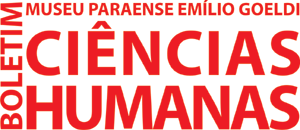In 2005 a case study was undertaken in agroforestry systems as practiced by family farmers in the Arapuã-Simeira colonization project, municipality of Garrafão do Norte, Pará state, in northern Brazil, with the purpose of describing and systematizing the agrosocial characteristics of the family farmers and their experiences and perceptions of agroforestry systems. The methodology consisted of field research, application of standard questionnaires, observation and discussion in group. Farmers gave preference to some perennial cultures and forest species for intercropping, and the main explication for the introduction of species in their fields was economic gain and social behavior. Multifaceted thinking is seen in the choice of agriculture products and management options, resulting in each property having a combination of different agricultural systems that are adapted to local conditions. The farmer knows better than anyone else how to determine the ideal combination for his agricultural system. The study shows the agrosocial and socialcultural trajectory of the farmers and hypothesis are advanced on what would imply the adoption of agroforestry systems in family agriculture. A systemic approach can be very useful in understanding the relationships and social processes that are important aspects of the rural and agrarian question.
Agroforestry system; Family agriculture; Agrosocial analysis; Pará; Amazon












